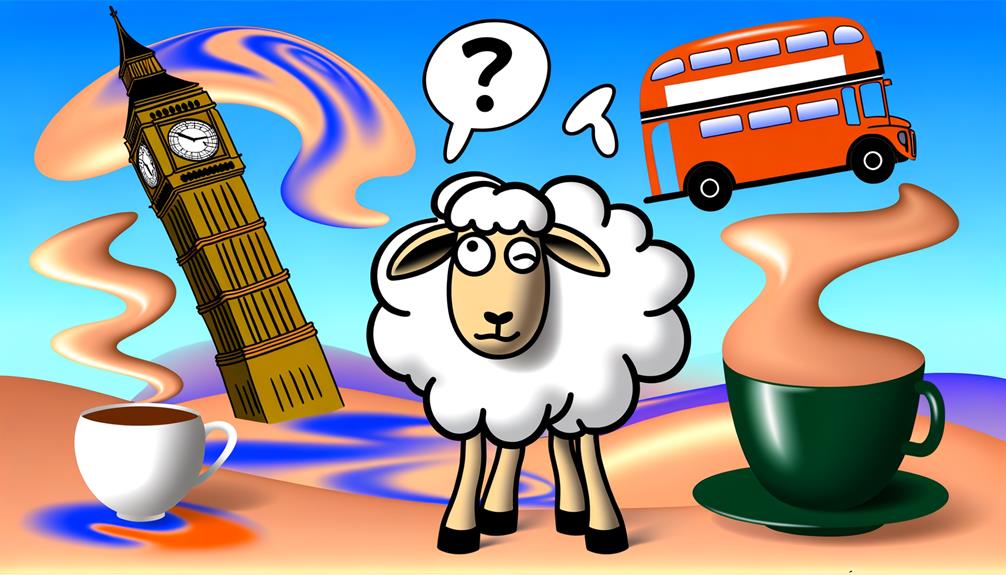In British slang, 'melt' has evolved from its literal sense to describe someone overly sentimental or deemed too emotionally vulnerable, often in a loving yet teasing manner. Originating from the socio-linguistic fabric of East London, it demonstrates how regionally rooted terms can demonstrate broader societal shifts. Nowadays, it's used affectionately to call someone a 'softie' or 'pushover,' indicating not just emotional weakness but also a level of endearment. Its usage in popular culture and social media further solidifies its place in contemporary dialogue. Beyond this nuanced affection, understanding 'melt' reveals layers of language evolution and cultural acceptance, offering a richer grasp of British slang.
Key Takeaways
- 'Melt' in British slang describes someone who is overly emotional or lacks courage.
- It often carries an undertone of affectionate teasing rather than harsh criticism.
- The term is widely used in urban vernacular, reflecting societal and linguistic shifts.
- Synonyms include 'softie' and 'pushover', highlighting its meaning related to vulnerability.
- Context is key, as 'melt' can signify insult or endearment, depending on usage.
The Origins of 'Melt'
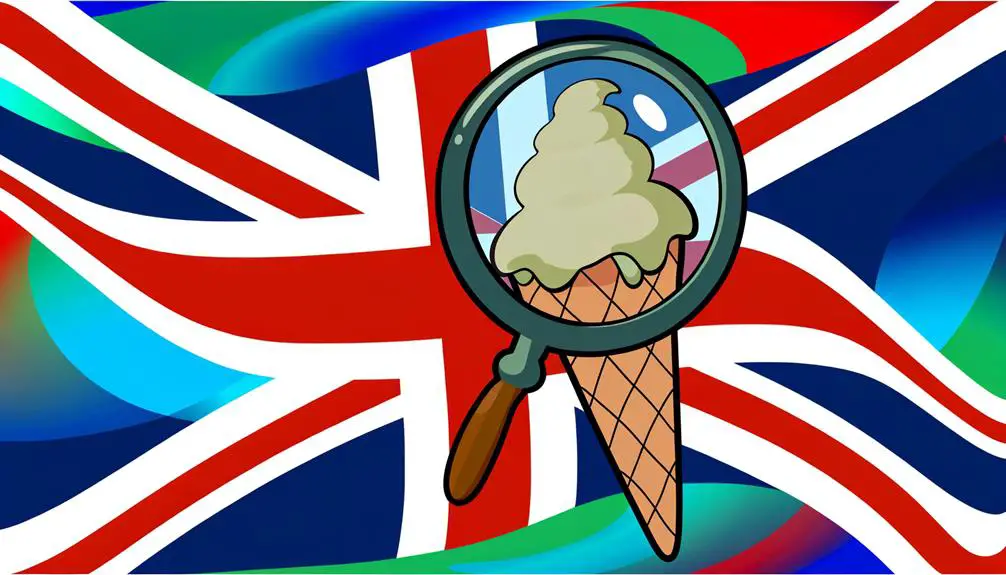
Tracing back to the vibrant streets of East London, 'melt' has evolved from its literal meaning to become a staple in British slang, embodying a unique blend of affection and disdain. The melt etymology roots itself deeply within the socio-linguistic fabric of the UK, showcasing a fascinating journey of linguistic evolution. Originally, 'melt' simply referred to the process of something becoming liquified by heat. However, as you investigate the intricacies of language change, you'll discover that 'melt' has undergone significant semantic shifting, a phenomenon where words acquire new meanings over time.
This transformation isn't random but reflects the dynamic nature of urban vernacular, especially within the melting pot of cultures and dialects found in London. The term began to take on metaphorical hues, extending beyond its physical implications to describe characters and behaviors within social interactions. It's a demonstration of how language mirrors societal shifts, adapting to capture new realities and relationships.
Understanding the melt etymology requires acknowledging the role of linguistic evolution in shaping modern slang. This evolution isn't just about adopting new words but involves a complex interplay of social, cultural, and psychological factors that influence how language is used and evolves. As 'melt' shifted from its original meaning to a slang expression, it exemplified how language is a living entity, constantly evolving to meet the communicative needs of its speakers.
In this context, 'melt' serves as a prime example of how words can stretch and adapt, reflecting both endearment and critique within a single term. This linguistic flexibility underlines the rich tapestry of British slang, where words are imbued with nuanced meanings that resonate deeply with those who wield them.
Understanding 'Melt'

Having explored the etymology of 'melt', let's now focus on comprehending its current usage and significance in British slang. Understanding the term 'melt' in the context of British colloquialism involves recognizing its evolution and the nuances that come with its contemporary application. The term, which has roots that stretch into a broader historical and linguistic context, has been appropriated into modern vernacular, particularly among younger demographics in the UK, to convey specific sentiments or describe particular types of behavior and personalities.
Here are three key points to deepen your grasp of the term:
- Melt Etymology: Originally referring to the physical process of becoming liquefied by heat, 'melt' has transcended its literal meaning. Its figurative use in slang captures the idea of someone becoming emotionally soft or overly sentimental, often to the point of ridicule. This transformation highlights the fluid nature of language and how social interactions shape linguistic evolution.
- Current Significance: In today's usage, 'melt' is often employed to describe someone who shows excessive vulnerability, lacks backbone, or is overly sentimental in situations that don't warrant such reactions. It's a term loaded with both affectionate teasing and outright disdain, depending on context.
- Melt Synonyms: Understanding synonyms such as 'softie', 'pushover', or 'sap' can provide additional insight into the term's nuanced meanings. These synonyms share a common thread in depicting someone as emotionally vulnerable, but 'melt' carries a uniquely British flavor that's both endearing and derogatory.
Usage in Popular Culture
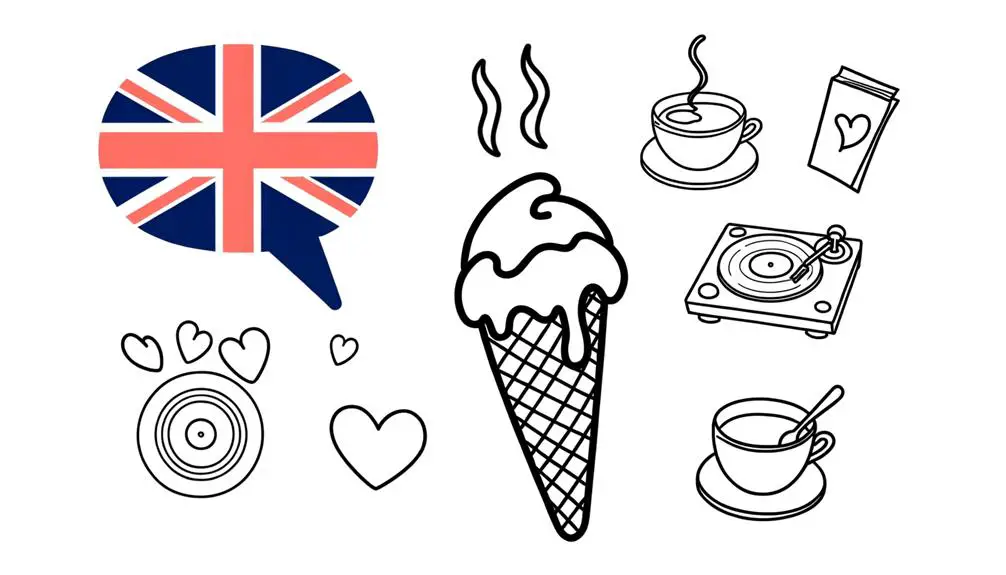
As the term 'melt' permeates popular culture, its nuanced meanings and applications in various media forms underscore its relevance and adaptability in contemporary society. You've probably noticed how seamlessly it's woven into film dialogues, showcasing its versatility beyond mere slang. It's not just a word; it's a reflection of attitudes and emotions, capturing moments of vulnerability or disdain with precision.
Celebrity endorsements have further propelled 'melt' into the limelight, with public figures using it in interviews or social media, often to express affection or ridicule. This dual nature of the term makes it a fascinating study of language evolution and cultural acceptance.
Below is a table illustrating the diverse usage of 'melt' in popular culture:
| Context | Example | Implication |
|---|---|---|
| Film Dialogues | "You're acting like a total melt, mate." | Calling out weakness or foolishness |
| Celebrity Tweets | "Just met the biggest melt. #cringe" | Expressing embarrassment or disdain |
| Music Lyrics | "I'm a melt for you." | Showing vulnerability or love |
| TV Shows | "Don't be a melt." | Advising against over-sensitivity |
This analysis reveals how 'melt' serves multiple communicative functions, from criticism to endearment, reflecting its adaptability and depth. Its presence in popular culture not only enriches the media it features in but also demonstrates the dynamic nature of language, evolving with society's changing values and norms.
Regional Variations

You'll find that 'melt' doesn't carry the same connotation or intensity across the UK, revealing fascinating geographic slang differences.
Local usage nuances further color its meaning, depending on whether you're chatting in a pub in London or a café in Glasgow.
Understanding these variations provides a richer insight into British slang and its regional identities.
Geographic Slang Differences
Across the UK, the slang term 'melt' exhibits significant regional variations, each imparting a distinct local flavor to its meaning. The journey of 'melt' through the landscapes of British dialects showcases the fascinating interplay of dialect influences and slang evolution.
- In London, 'melt' often indicates someone acting foolishly, a reflection of the city's dynamic slang evolution.
- In Scotland, the term might lean more towards describing someone as overly sentimental, highlighting the influence of local dialects.
- In Manchester, it can be a blend of both, reflecting the city's unique cultural and linguistic identity.
Understanding these geographic nuances adds layers to your comprehension of British slang, making you appreciate the rich tapestry of regional dialects and their contributions to slang's continuous reshaping.
Local Usage Nuances
Delving into the regional variations of 'melt,' one discovers a nuanced tapestry of local usage that vividly illustrates the complexity of British slang.
The term's meaning subtly shifts under the weight of dialectical influences, revealing how deeply embedded it's in the localised vernacular.
In some areas, 'melt' primarily conveys affectionate exasperation, a ribbing among friends, while in others, it might be a sharper critique of someone's foolishness.
These conversational contexts are vital; they dictate not just the word's interpretation but its reception.
You'll find that understanding the local inflections and nuances of 'melt' offers a richer insight into the dynamics of British slang, magnifying how speech patterns are intricately tied to regional identity.
Related Slang Terms
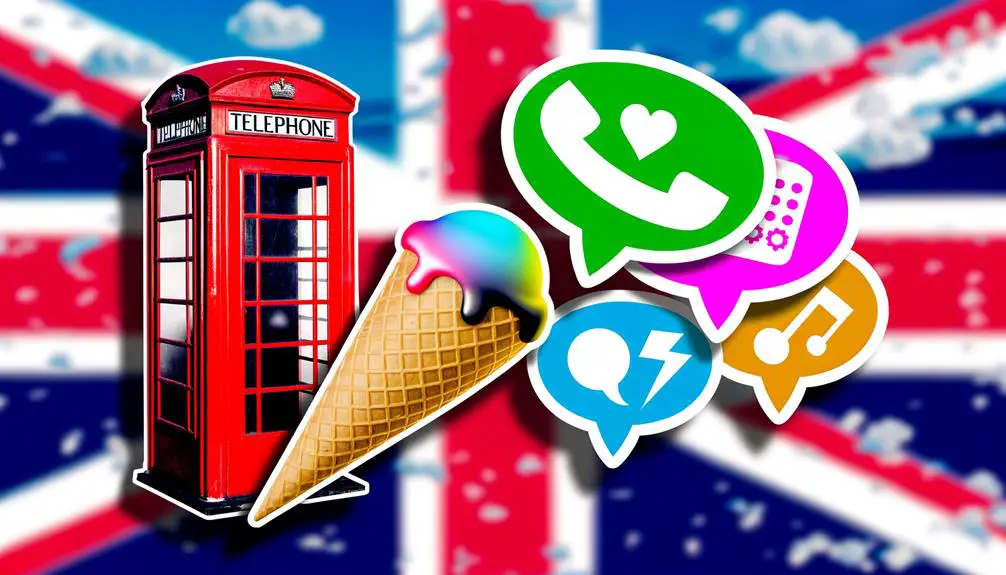
Several British slang terms share similarities with 'melt,' each reflecting unique aspects of British colloquial speech. Understanding these related terms not only enriches your vocabulary but also offers insight into the slang evolution and terminology comparison. This exploration reveals the playful yet nuanced nature of language within various contexts across the UK.
- Mug: This term often refers to someone easily deceived or manipulated, much like a 'melt.' It highlights the individual's naivety or gullibility, emphasizing their vulnerability in certain situations. Comparing 'mug' to 'melt,' both depict a lack of astuteness, yet 'mug' leans more towards being duped.
- Plonker: Originating from British sitcoms, 'plonker' is affectionately used to call someone a fool or an idiot. While 'melt' can imply emotional softness or sentimentality, 'plonker' directly addresses someone's foolish actions. This comparison underscores the versatility of British slang in expressing disapproval or endearment.
- Numpty: Scottish in origin, 'numpty' describes someone lacking in common sense or intelligence. It's a more humorous and less harsh critique of someone's actions compared to 'melt.' While 'melt' might focus on emotional vulnerability, 'numpty' zeroes in on intellectual lapses.
You're now armed with a deeper understanding of British slang, appreciating the cultural and linguistic layers that terms like 'melt,' 'mug,' 'plonker,' and 'numpty' bring to everyday conversations. Each term, with its unique connotations and origins, contributes to the rich tapestry of British vernacular, reflecting the dynamic nature of language and its ability to evolve and adapt over time.
Navigating Misinterpretations

Understanding the nuances of British slang like 'melt,' 'mug,' 'plonker,' and 'numpty' prepares you to navigate potential misinterpretations in conversation. The evolution of slang contributes to its richness but also increases the likelihood of cross-cultural confusion. You're likely to encounter situations where the same word means different things to different people, or where the intended emotional tone is lost or misconceived.
To keep you informed and engaged, here's a concise table illustrating some common British slang terms and their potential for misinterpretation:
| Slang Term | Common Meaning | Misinterpretation Risk |
|---|---|---|
| Melt | Foolish person | Affection/endearment |
| Mug | Easily fooled person | Actual mug (for drinking) |
| Plonker | Idiot | Mild insult or term of endearment |
| Numpty | Fool or stupid person | Cute or harmless |
This table highlights the flexibility and potential confusion surrounding these terms. For example, calling someone a 'melt' might be interpreted as an insult or, in a different cultural context, could be misconstrued as a term of affection. Similarly, the term 'mug' might lead to literal interpretations, detracting from the intended meaning.
It's important to understand the context in which these slang words are used. The slang evolution, while enriching the language, demands a heightened awareness of the conversational and cultural backdrop to prevent misinterpretations. By familiarizing yourself with these terms and their nuances, you mitigate the risk of cross-cultural confusion and promote smoother, more meaningful interactions.
'Melt' in Social Media
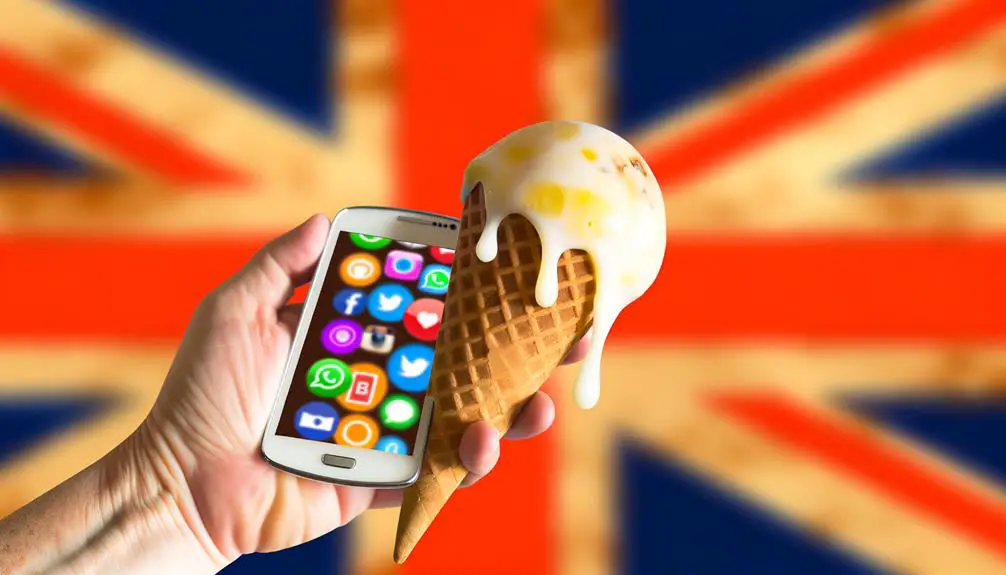
In the realm of social media, the term 'melt' has gained traction, often used to describe someone acting overly sentimental or weak in the face of adversity. This usage reflects a broader cultural shift, where traditional British slang seamlessly integrates into global digital communication. The adoption and evolution of 'melt' in online spaces can be dissected through several key aspects:
- Melt Emojis: These graphical symbols serve as a shorthand for conveying the sentiment associated with being a 'melt'. Often, a combination of face emojis showing embarrassment, sadness, or defeat is used to visually represent someone melting down emotionally. This visual shorthand adds a layer of nuance and humor, allowing users to communicate complex emotions swiftly.
- Online Debates: The term frequently surfaces in heated online debates. Here, 'melt' is wielded as a playful jab or a mild rebuke, aimed at those perceived to lack backbone or excessively emotional responses. Its usage in this context underscores the dynamic nature of language, adapting to the ebb and flow of online discourse.
- Cultural Diffusion: The spread of 'melt' across various social media platforms exemplifies the fluid nature of internet slang. Originally rooted in British culture, the term now finds resonance in diverse online communities, illustrating the global exchange of linguistic expressions facilitated by digital communication channels.
Understanding 'melt' within the social media landscape requires recognizing its role as both a linguistic marker and a cultural artifact. It encapsulates the intricate ways in which language evolves, reflecting broader societal changes and the idiosyncrasies of digital communication.
Frequently Asked Questions
How Does the Slang Term 'Melt' Impact Social Interactions and Relationships When Used Among Friends?
When you're maneuvering friendship dynamics, using 'melt' can really shape interactions. It's all about cultural interpretations; in some circles, it's banter, tightening bonds by poking fun. But tread carefully, as it's a fine line. Misinterpretation can strain relationships, making someone feel belittled or outside the joke.
Understanding and respect are key. An informed, precise use of slang like 'melt' can either cement your place in a group or inadvertently isolate you.
Can the Use of 'Melt' in Conversation Influence an Individual's Self-Perception or Confidence?
Definitely, using 'melt' in conversation can greatly influence how you see yourself. It's a term that, when thrown your way, can dent your self-esteem, making you feel less than or inadequate.
However, it's important to remember that words only have the power you give them. By focusing on confidence rebuilding, you can counteract these negative self-esteem impacts, ensuring that such slang doesn't shake your sense of self-worth or identity.
Are There Specific Industries or Professional Environments Where the Term 'Melt' Has Been Adopted Into the Jargon, and How Is It Applied?
In the bustling world of finance, you'll hear 'melt' echoing through the trading floors. It's a term, born from British slang, that's found its way into the jargon to describe someone crumbling under pressure.
This cultural adaptation of 'melt' showcases its etymology's journey from informal slang to a professional descriptor. Analyzing its use offers insights into how language evolves and embeds itself into specific workplace cultures, impacting the dynamics of professional environments.
How Do Non-Native English Speakers Perceive the Term 'Melt' When They Encounter It in Conversations or Media, and What Challenges Do They Face in Understanding Its Nuanced Meanings?
You might find yourself puzzled when you first hear 'melt' in conversations or media. This isn't just about deciphering words; it's about maneuvering cultural confusion and grasping the slang's nuanced meanings.
The challenge lies in understanding the context and emotional undertones that don't always traverse cultural boundaries smoothly. Translation challenges further complicate matters, as literal interpretations fail to capture the slang's essence, leaving you scratching your head in bewilderment.
What Psychological Effects, if Any, Does Labeling Someone as a 'Melt' Have on Group Dynamics and the Social Hierarchy Within Peer Groups?
Labeling someone as a 'melt' can notably impact group dynamics and social hierarchy. Under labeling theory, this tag might lead to peer exclusion, affecting the individual's self-esteem and position within the group.
You're seen differently, and this perception changes how others interact with you. The label doesn't just describe; it alters your standing, making it harder to blend in or assert yourself within the peer group, reinforcing social divides.
Conclusion
Now that you've dipped your toes into the vibrant pool of British slang, understanding 'melt' should be a breeze. From its roots to its omnipresence in social media, 'melt' has shown its versatility and staying power.
Whether it's maneuvering its regional nuances or decoding its appearance in popular culture, you're now better equipped to not only grasp but also use this term accurately.
Remember, in the fast-evolving world of slang, staying informed is key to not melting under pressure.

